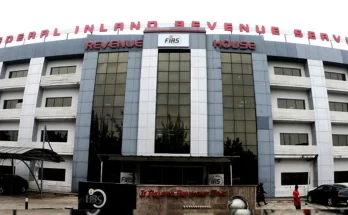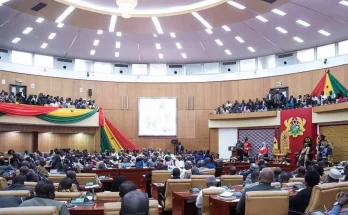Nigeria Faces FX Reserve Threat. A proposed 5% tax on foreign remittances by United States residents has raised concerns in Nigeria, with tax analysts and financial experts warning that the policy could significantly undermine the country’s foreign exchange inflows and boost the use of black-market channels.
According to reports from financial media and research analysts, the bill currently under consideration by U.S. lawmakers aims to shore up domestic fiscal revenues. However, stakeholders say the implications for remittance-reliant economies like Nigeria could be far-reaching.
Under the draft legislation, a 5% tax would be levied on all outbound money transfers to foreign recipients.
The tax would be borne by the sender at the point of transfer. While U.S. citizens may claim the taxed amount as a credit against their income tax, non-citizen residents, who represent a large share of remittance senders to countries like Nigeria, would not qualify for this relief.
Nigeria at Risk of Foreign Exchange Disruptions
Experts say the proposed tax could deliver a shock to Nigeria’s foreign exchange ecosystem, especially at a time when diaspora remittances have become a major cushion for the naira.
Remittances to Nigeria hit a five-year peak of $23.8 billion in 2024, accounting for roughly 12.7% of the country’s GDP and contributing 17% to its current account growth, according to data referenced by CSL Research, a Lagos-based financial advisory firm.
“These inflows play a stabilizing role in Nigeria’s balance of payments and help mitigate inflationary pressures by providing household-level support,” the firm stated.
CSL further observed that the United States remains one of the largest sources of remittances into Nigeria. As such, any policy that raises the cost of cross-border transfers could negatively affect inflow volumes.
Ethiopia Rakes in Over 640 Billion Birr in Taxes Amid Crackdown on Evasion and Illicit Trade
Impact on 2025 Projections
In its baseline forecast, CSL Research projected a 6.2% year-on-year increase in remittance inflows for 2025, bringing the total to an estimated $25.3 billion, about 13.4% of GDP.
However, the firm warned that the proposed U.S. tax could pose a downside risk to this outlook.
“If implemented, the levy may discourage formal transfer channels and potentially reduce the pace of remittance growth anticipated in the coming year,” the firm stated.
Shift Toward Informal Channels
Tax policy experts also caution that the tax could incentivize migrants to sidestep regulated remittance platforms in favor of informal networks.
Such a shift could result in reduced financial traceability, limit the government’s capacity to monitor inflows, and complicate efforts to harness remittances for public sector planning.
“The risk is not just to inflow volume, but also to transparency and the government’s ability to leverage these funds for national development,” CSL noted.
Ongoing Legislative Developments
While the proposed legislation is still under debate in the U.S., Nigerian fiscal authorities and economic analysts are said to be monitoring developments closely.
There is growing concern that the final outcome could ripple through Nigeria’s economy, with implications for tax planning, monetary policy, and household welfare.
Tax-focused observers believe that timely engagement with global financial institutions and diplomatic channels may be needed to ensure Nigeria’s concerns are represented in any final decision.




